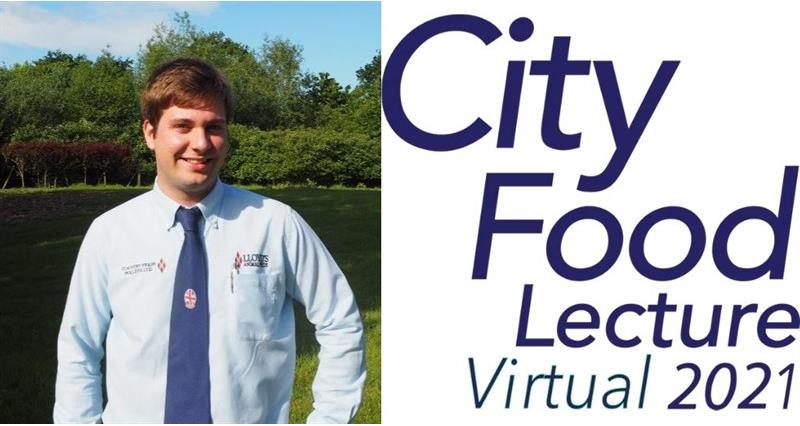The event was a great success with over eight hundred viewers tuning in to hear from Ocado Retail CEO, Mel Smith CBE and watch the lively panel discussion, chaired by radio and TV presenter Charlotte Smith.
Modern retailing
Mel Smith, gave us a great lecture and insight into ‘modern retailing’ explaining how Ocado have expanded during the last twelve months, as a result of changing consumer shopping habits, due to the pandemic.
An interesting fact Mel shared was that in 2020, Ocado sold enough toilet paper to go to the moon and back!
The UK has the highest grocery sales in comparison to other developed countries across the world and there has been a huge shift to consumers purchasing their weekly groceries online as a direct result of COVID-19.
From surveys carried out 30 percent of consumers say they will continue to buy groceries online post COVID-19. The majority of customers have expressed their views as to the reason they have shifted to online, with the main reason being that people don’t want to be purchasing fresh produce such as fruit and veg in store which has had the opportunity to be touched or sneezed over, which prior to COVID-19 wasn’t really something greatly considered!
One of the factors for Ocado’s success has been making the channel, from supplier to consumer, more direct which saves both time and money. By not having the standard regional stores and distribution centres, and replacing with a central fulfilment base, Ocado are able to streamline their supply chain.
Automation
Their Andover hub is one of the most automated warehouses in the world with orders being processed by algorithms and packed by robots. The robots have the capability of covering four metres per second and the automation enables a wider range of fresher food to be accessible to consumers. Two of the main reasons for this is that produce is normally held in regional distribution stores and most of these are heavily reliant on people working the shifts and not robots.
Ocado invested greatly in robots as they are more reliable and don’t need coffee breaks, they are also happy to work unsociable hours during the night. The average time from a customer making an order via Ocado’s Zoom service to receiving the order is currently forty-five minutes. The fastest time ever recorded was only eight minutes!
Tackling food waste
The next stage for Ocado is meal planning and trying to reduce the waste produced at home by incorporating ‘smart appliances’ such as a fridge which knows what’s inside and effectively orders to fulfil your requirements, whilst trying to make a meal out of products you have left that need using up.
There are also thoughts around the use of smart bar codes on perishable goods such as meat. The concept of a smart barcode is for it to change colour as it senses a change of the products stability e.g. it starts to decay. This technology will highlight the fact the product needs to be used soon to help minimise waste in the home.
The food waste from the company perspective is almost zero due to the robotics involved which makes the business very sustainable. This contributed to Ocado winning Which? ‘best online supermarket in the UK’ in 2019 and 2020.
The business has adopted a moral duty to send edible food waste to food banks and all other waste is utilised by anaerobic digestion plants to produce energy. Currently there is government legislation in place that prevents other retailers sending their food waste to food banks due to the short shelf life they have by the time they come to act upon them and not being able to guarantee a use by date. Ocado have the ability to send what will become waste much sooner due to their efficiency which ultimately reduces overall waste.
Questions and answers
The Q&A session, chaired by Charlotte Smith, was very thought provoking and included a good discussion regarding the future of our high street shops and the social impact of technology.
In a live poll on the evening, 16 percent of the lecture attendees felt concerned over the future of our high street stores. However, as HRH Princess Anne rightly pointed out when she concluded the evening, there are some foods which we buy using our senses such as cheese; as it is not possible (as yet) to use all of our senses e.g. smell when ordering online, it looks as though some products will always have a place on the high street.
Thanks to Charles Bourns for the invitation to this important event.
Watch a recording of the 2021 City Food Lecture and panel discussion.
